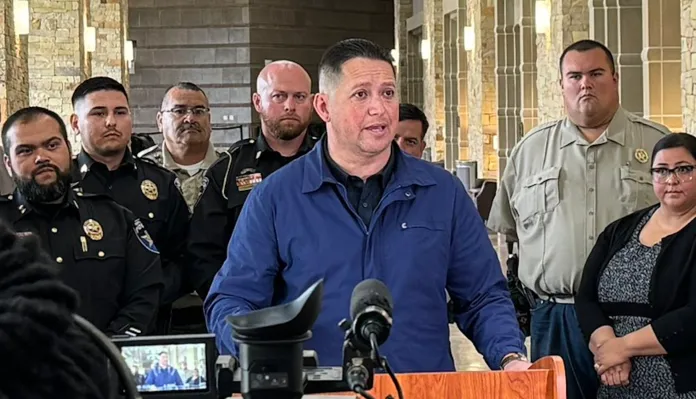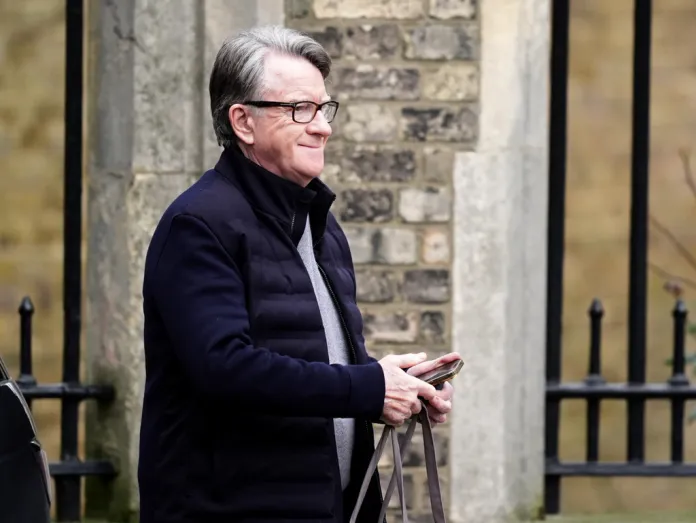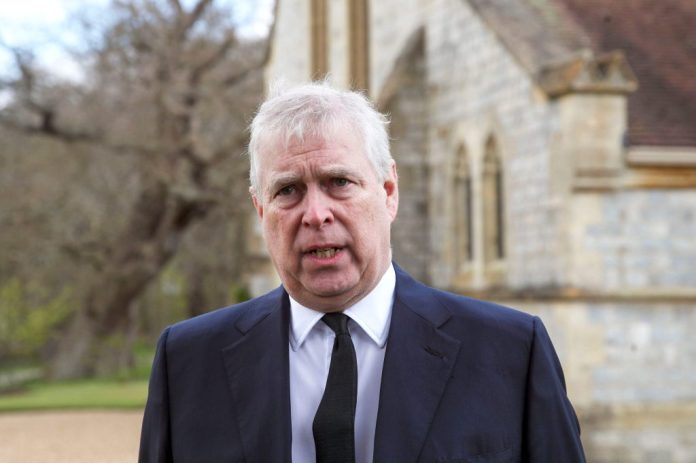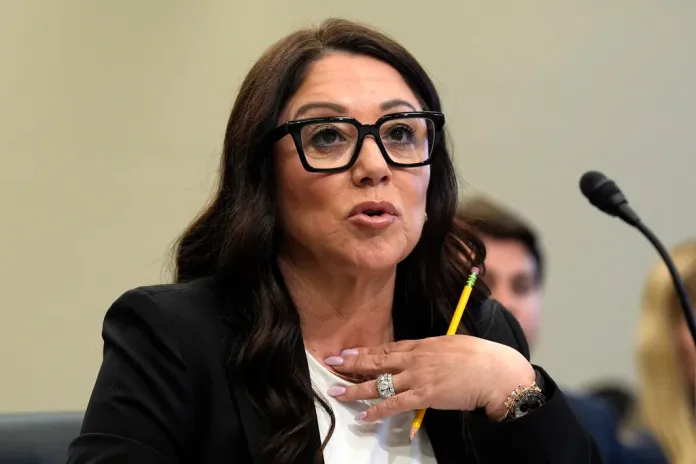How a crime lab scandal shook Kamala Harris’s district attorney office – Washington Examiner
A DUI case, was eventually arrested and charged in 2010 with stealing and using cocaine from evidence samples. This revelation led to the dismissal of hundreds of drug-related cases that had been processed by the lab, as the integrity of the evidence in those cases was called into question.
Harris faced criticism for her handling of the scandal, with some accusing her of dragging her feet in addressing the issue and failing to properly oversee the operations of the crime lab. In response, Harris defended her actions, stating that she acted swiftly to address the situation once it came to light and took steps to prevent similar incidents from occurring in the future.
As Harris now prepares for a potential presidential run in 2024, her record as a prosecutor, including her handling of the crime lab scandal, is likely to come under renewed scrutiny. Critics will continue to question her decisions and leadership during that time, while supporters will point to her overall record and accomplishments in office. Ultimately, it will be up to voters to decide how significant a role the scandal plays in their assessment of Harris as a candidate for the highest office in the land.
How a crime lab scandal shook Kamala Harris’s district attorney office
It was 2010. Apple had introduced its first iPad to the public. Julian Assange’s WikiLeaks released documents on the U.S. wars in Iraq and Afghanistan. The BP oil spill leaked over 3 million barrels of oil into the Gulf of Mexico. And Kamala Harris was the top prosecutor in San Francisco — where a scandal involving a crime lab threw her office into chaos and was a public embarrassment for the soon-to-be California attorney general.
The scandal, which culminated in a former police crime lab technician pleading no contest to a misdemeanor cocaine possession charge later expunged from her record and Harris dismissing roughly 1,000 drug-related cases, will likely be thrust back into the public eye now that Harris is the 2024 presumptive Democratic nominee for president. Harris, who would head to the U.S. Senate and be handpicked in 2020 to be Joe Biden’s running mate, will likely face off in November against former President Donald Trump — a development that comes on the heels of Democrats pledging support to Harris after Biden’s decision not to seek reelection and endorse the vice president.
Trump leads Harris 47.5% to 45.9%, according to a RealClearPolitics polling average.
“She’s unvetted,” said Tom Fitton, president of Judicial Watch, a conservative group investigating Harris’s past. “That vetting typically would have been done in a primary. It wasn’t done because the Democratic Party exploded the primary system and just installed her.”
Harris, who was elected as district attorney in San Francisco in 2003, is coming under fire from Republicans on the 2024 campaign trail over her record in the Golden State. MAGA Inc., the main super PAC supporting Trump, said in a Tuesday social media post that Harris “was the most liberal prosecutor in the most liberal state in the country” and “loves criminals and hates police.” The post linked to a 2020 op-ed by a veteran San Francisco public defender named Niki Solis. The op-ed, titled “I worked with Kamala Harris. She was the most progressive DA in California,” slammed Harris for not prosecuting young girls for prostitution. Critics have also taken aim at Harris for her support as attorney general of a law that reclassified some felonies to misdemeanors and has been faulted for a rise in retail theft.
At the heart of the Harris crime lab scandal was Deborah Madden, one of three workers in the lab. Madden, who in 2007 was temporarily suspended from working at the lab after she was convicted in a domestic altercation, would soon be on the radar of the district attorney’s office for not showing up to court to testify in cases as part of her job.
In an email in 2009 to Madden’s supervisor, Assistant District Attorney Sharon Woo under Harris called Madden “undependable” and said she had been perpetually calling in sick on days Madden was needed to testify, court documents show. Just four days later, in November of that year, a criminologist noticed that envelopes in Madden’s work area intended to house drug samples were “in disarray,” leading to the criminologist confronting Madden and informing her supervisor of a “security breach,” the court documents say. Harris has since said that she was not informed of the brewing lab problem by her aides or police.
The matter, however, escalated upon Madden’s sister in December 2009 calling authorities to inform them that she found a cocaine vial in Madden’s apartment. Madden left the lab and admitted “she had taken some cocaine salt from the lab for personal use,” according to a sentencing memo.
It wasn’t until March 2020 that police in San Francisco announced the then-allegations against Madden and shut down all drug testing in the lab, the San Francisco Chronicle reported at the time. Then-San Francisco Police Chief George Gascon, now Los Angeles district attorney, said the matter was “disappointing,” while Harris said her office would “regroup and reevaluate” police drug testing.
But for three months after Woo’s email, the district attorney’s office continued to prosecute crime lab testing-linked cases. Defense attorneys were also not informed that evidence coming from the lab could be tainted or that Woo had raised concerns just recently over whether Madden, a witness for prosecutors, was credible.
Harris, then 45, was at the time running to be the next attorney general in California. The Madden situation sparked questions on the campaign trail about what the prosecutor knew and when — with public defender Jeff Adachi, an old friend of Harris, publicly lambasting Harris as always being “out of town or not available” to discuss the matter.
“We need a district attorney who will give this the attention it deserves,” Adachi said in April 2010.
Then, in May 2010, as drug defendants requested their cases be dismissed over alleged prosecutorial misconduct, a judge issued a scathing ruling that concluded Harris “failed to disclose information” about Madden “that clearly should have been disclosed” under the U.S. Constitution to defense attorneys, according to the ruling by Anne-Christine Massullo of the San Francisco County Superior Court.
Harris’s office had a “duty to implement some type of procedure to secure and produce information relevant to Madden’s criminal history,” the judge said at the time.
Harris’s office tried to fight Massullo’s ruling, accusing the judge of bias due to her husband being a defense attorney, the Associated Press reported in August 2010.
A Monterey County Superior Court judge, however, ruled that Massullo had no conflict of interest. In the aftermath, Harris’s office reportedly had to dismiss close to 1,500 drug cases. Many cases were those in which sentences were served or convictions were already obtained.
To Harmeet Dhillon, a prominent Republican attorney in San Francisco, the crime lab scandal should have been “career-ending.” Harris clearly mismanaged her office, Dhillon said.
“She failed her ethical duty,” Dhillon told the Washington Examiner. “She’s a terrible lawyer — a terrible manager.”
Harris’s presidential campaign did not return a request for comment.
" Conservative News Daily does not always share or support the views and opinions expressed here; they are just those of the writer."




